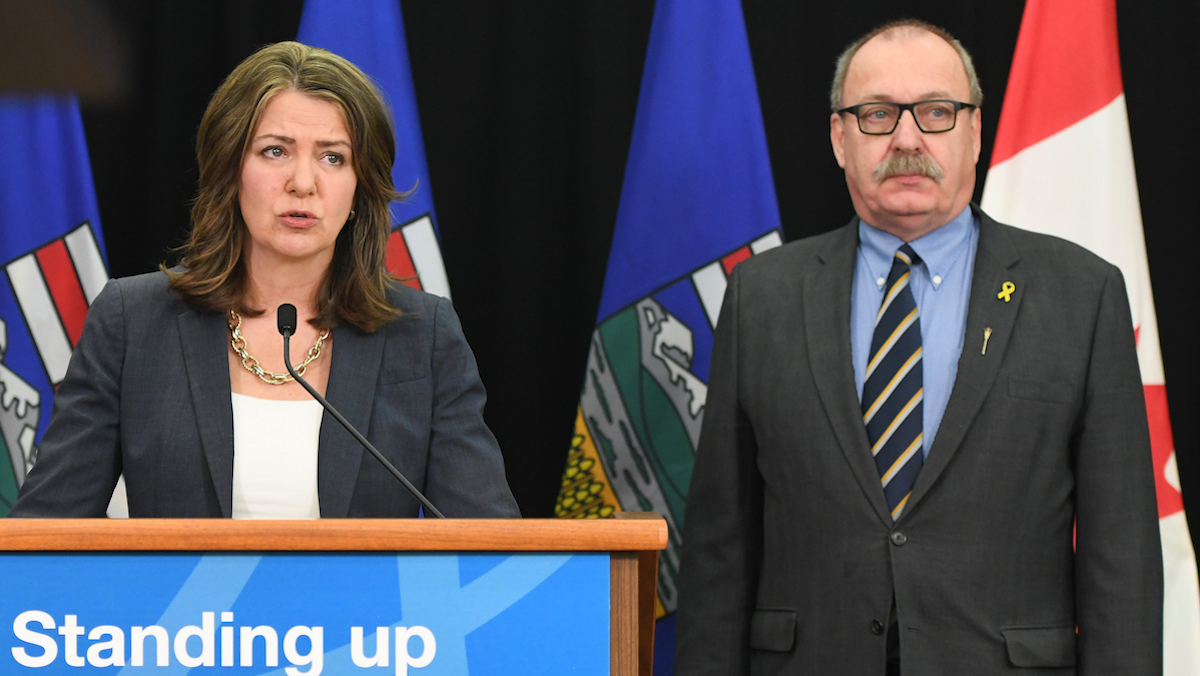The United Conservative Party (UCP) is pulling the plug on regional planning in Alberta in a move that will be a big win for the “Sprawl Cabal” of wealthy developers and for municipal politicians in smaller communities clustered around the province’s two biggest cities.
But it’ll be a disaster for Edmonton and Calgary taxpayers and the liveability of Alberta’s cities – and, longer term, it won’t be good news for the province’s natural beauty or the climate either.
In other words, it’s right on brand for the Premier Danielle Smith’s UCP, with its power base concentrated in rural Alberta, its ever-increasing contempt for Alberta’s big cities and their residents, and a vision ever focused on fossil fuels and fossil politics.
Something like this has happened before, back in 1993, not long after Ralph Klein became premier of Alberta.
Rural municipalities were frustrated with the powerful regional planning commissions required by the Municipal Government Act of the day, and as the “Klein Revolution” got under way, urban politicians worried something might be up.
But when announcement was made by Klein’s municipal affairs minister, Steve West, on Oct. 7, 1993, it landed like the proverbial bombshell.
While the Klein Government’s free-market sentiments had been well known, “the municipal affairs minister’s announcement nevertheless came unexpectedly,” one observer with whom readers of this blog will be familiar wrote at the time. “And the end of formal, legislatively mandated regional planning in Alberta … followed swiftly.”
In the mid-Zeros, Progressive Conservative premier Ed Stelmach made a stab at getting regional planning and regional co-operation around Alberta’s two largest cities back on track on a voluntary basis.
Arguably, though, it took until 2016 when Rachel Notley’s NDP government passed the Modernized Municipal Government Act, which among other things restored some mandatory regional planning to Alberta, that something approaching sanity was restored on the fringes of Calgary and Edmonton.
“We want to encourage municipalities to work together so that we can eliminate duplication of services, we can find efficiencies but, quite frankly, so that we can plan and manage growth in the way that works for all of our citizens,” municipal affairs minister Deron Bilous said in the fall of 2015 when the NDP introduced its legislation. (Emphasis added.)
The Edmonton and Calgary regional metropolitan boards were formally established in 2017.
And it even seemed to be working for a while, even though the Sprawl Cabal – the term is thought to have been coined by former Calgary mayor Naheed Nenshi – hated it because it made it harder to slap up cheap, high-profit subdivisions outside city boundaries and dump many of the costs of urban sprawl on city taxpayers.
Last spring, a report on new-house sales prices tracked by the City of Edmonton suggested that “the sprawl subsidy” – the cost of servicing new subdivisions on the fringes of Canada’s big cities – created profits of more than $1 billion on revenue of about $11 billion over a decade for Edmonton developers.
By contrast, the city of Edmonton estimates that more than 90 per cent of the vehicle kilometres travelled on regional roadways that must be maintained by city taxpayers with little help from the province are by residents of surrounding communities, clear evidence of disproportionate use by regional residents.
But plus ça change, plus c’est la même chose, this is Alberta, so obviously the return to mandatory regional co-operation wasn’t going to last.
There’s been a buzz for several days that the UCP was going to do something bad to regional planning, and do it fast while they flood the zone with … other dubious policies.
But history repeated itself, presumably this time as farce, when Municipal Affairs Minister Ric McIver channelled West and surprised everyone all over again.
“The news was sudden. It was unexpected,” Edmonton Metropolitan Region Board Chair Allan Gamble told a Postmedia reporter after learning that the province was cutting the EMRB’s modest $1 million dollar funding and doing the same thing to its Calgary counterpart.
McIver also told the two regional planning bodies that membership would be voluntary henceforth – another page ripped from the Steve West playbook.
The result will be the same too, the collapse of regional planning in Alberta a little more than 30 years after the last time it was made to collapse.
Frankly, it’s mildly surprising former UCP premier Jason Kenney, who often governed by spite, didn’t dump it in the summer of 2019 just because it could fairly be described as an NDP policy.
As for Nenshi – now leader of the NDP – he predicted that the result will be “the wild west in planning.”
“When you’re in a housing crisis, that’s the worst possible thing you can do because you can’t plan where to put the houses where the infrastructure already exists, where transit is already in place,” he told The Edmonton Journal’s reporter.
What he most likely won’t say, if he gets around to making an official statement, is what the obvious solution is, to wit: amalgamation of the municipalities around Alberta’s two biggest cities.
This will never fly, of course, in a province dominated by politicians from rural ridings who are quite content to let urban voters pay the freight whenever possible. And we’ll probably have to put up with the Opposition staying mum on that suggestion as well.
The UCP, naturally, will likely spin this change as doing something about Canada’s housing crisis, although most of the houses built on the ever expanding fringes of Edmonton and Calgary will not-so-mysteriously remain far beyond the financial reach of the folks who need housing most desperately.



